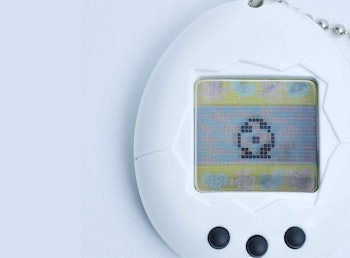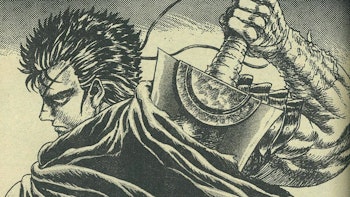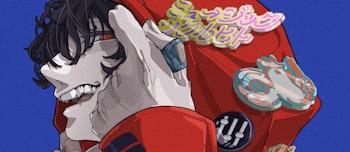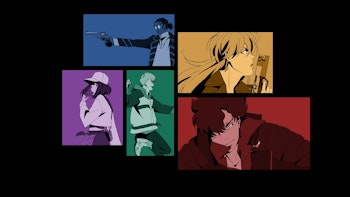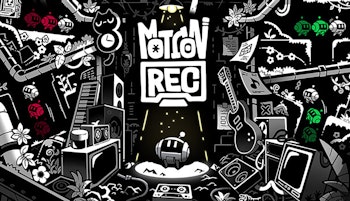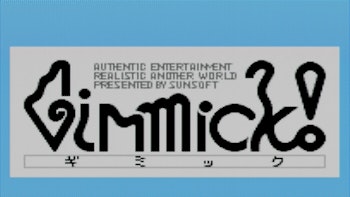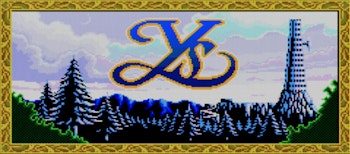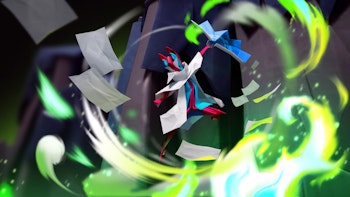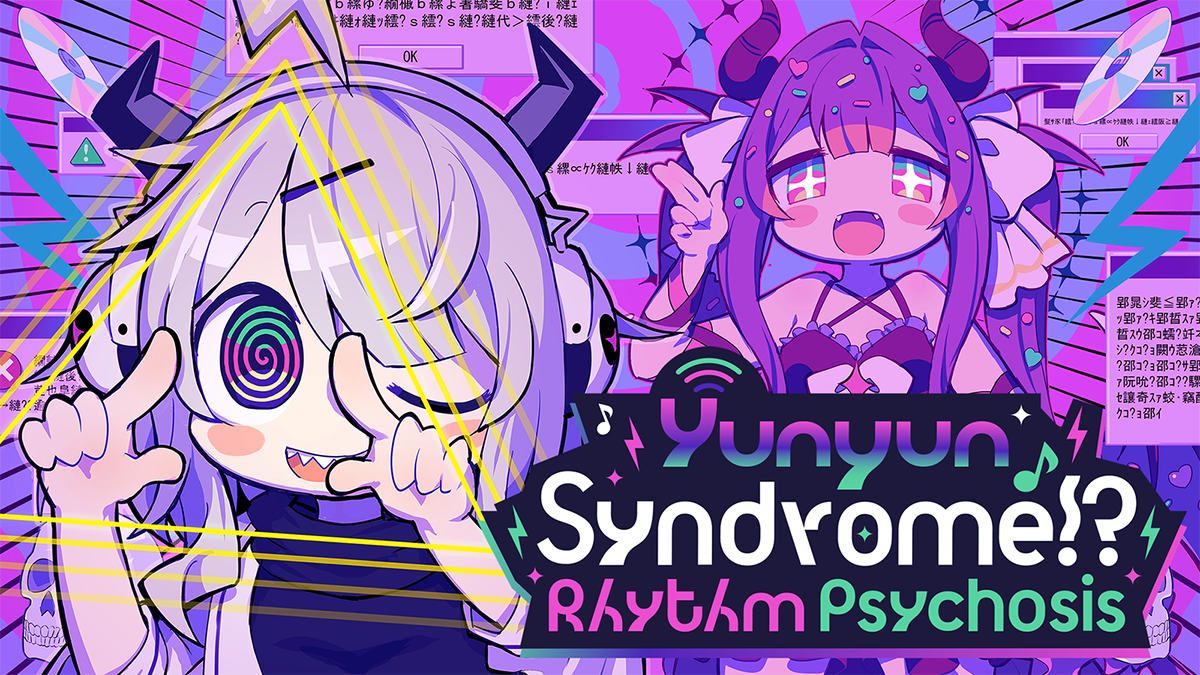
What do you get when you blend Japan’s high-energy electronic denpa music with high-octane rhythm games, and a shut-in with a tenuous grip of reality and a parasocial connection to a 2D anime girl? Something like Yunyun Syndrome!? Rhythm Psychosis.
In a somewhat-middling year for Tokyo Game Show screaming for originality and exciting titles, this was a game that stood out as an example of a relative newcomer to the industry willing to embrace a niche and the quirks of the hardcore audience to produce something with precise appeal and, with enough polish, potential broad intrigue. The company behind the project, Alliance Arts, are a self-styled “otaku” company embracing their nerdy interests within their work. In that mission, the company has partnered with developer Who You for a game that can probably be best summarized as a blend of Konami’s beatmania titles and Needy Girl Overdose.
Qtie is a hikikkomori, a girl whose spiral into shut-in life has created a room of piling mess and problems she escapes through the world of the internet. She gets high, she stays inside, vibes to denpa music, and falls head over heels for 2D girls, particularly Yunyun. When she buys her fan disk, the program begins to talk to her, only causing her tenuous grip on reality to further break. She falls into a love-bombing, keyboard-smashing infused frenzy that can only be solved by smashing copypastas online on social media and propagating the Yunyun love until world domination. Perhaps with a bit of encouragement from the 2D girl herself.
The game takes place entirely within Qtie’s desktop, Yunyun talking directly to Qtie and thus, the player, in encouraging her to exalt their praises to the world. This means you can interact with the files on her desktop and scroll through her diary, photos, social media and more. All the menus are diegetic, with Yunyun an energetic, adorable virus that has brainwashed our poor protagonist.
The game is very online, for lack of a better term, but also highly in tune with the present of the DJ, electronic and denpa music scenes within Japan. How do you spread your love for our beloved waifu? By playing denpa music on your keyboard. But what is denpa? The style as we know it now originated online and in the underground scene in the mid-2000s from artists like MOSAIC.WAV, though its true origins can be tracked back to some extent to the subculture bishojo games proliferating the otaku home of Akihabara.
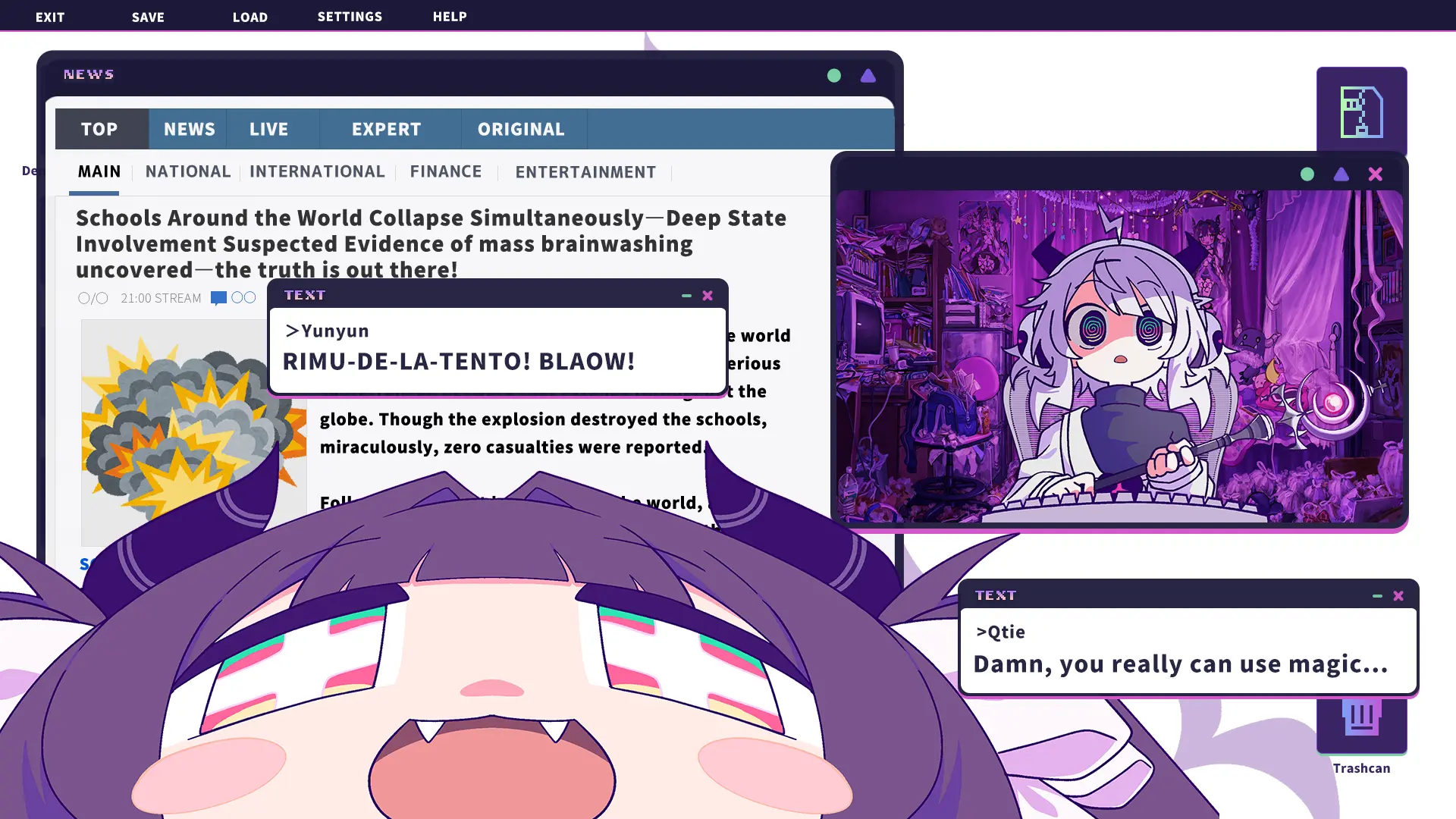
It even reached the idol scene through groups like Dempagumi.inc, though the genre can most easily be described to the lay observer as on of the precursors to the hyperpop phenomenon seen internationally. The music is defined by its heavily-electronic, synth-driven and distorted sound, with chaotic structure, high-pitched kawaii female vocals and an almost-aggressive bass that makes it a near-assault on the senses on a first listen as it refuses to stay static and predictable.
The sound would take off and continue to rise, blasting through the halls of clubs like MOGRA and even partially influencing the mainstream through Vocaloid and some of its early producers breaking out of the underground. Still, its fast, kinetic sound remains most highly-associated with the hardcore otaku. Those with tendencies for obsession and who may not be entirely stable. Just like Qtie.
The demo included a surprising range of licensed and original songs produced specifically for the game by highly-renowned names within the denpa and club music scene. Maron and KOTOKO produced an opening theme for the game with animation from odyk and Atsushi Wakamura, complete with BGM from HARDCORE TANO*C and contributions from artists like Aiobahn and more. These songs represent the core gameplay of the title, and function as you would expect of most rhythm games by hitting the correct button on your keyboard in time to the music.
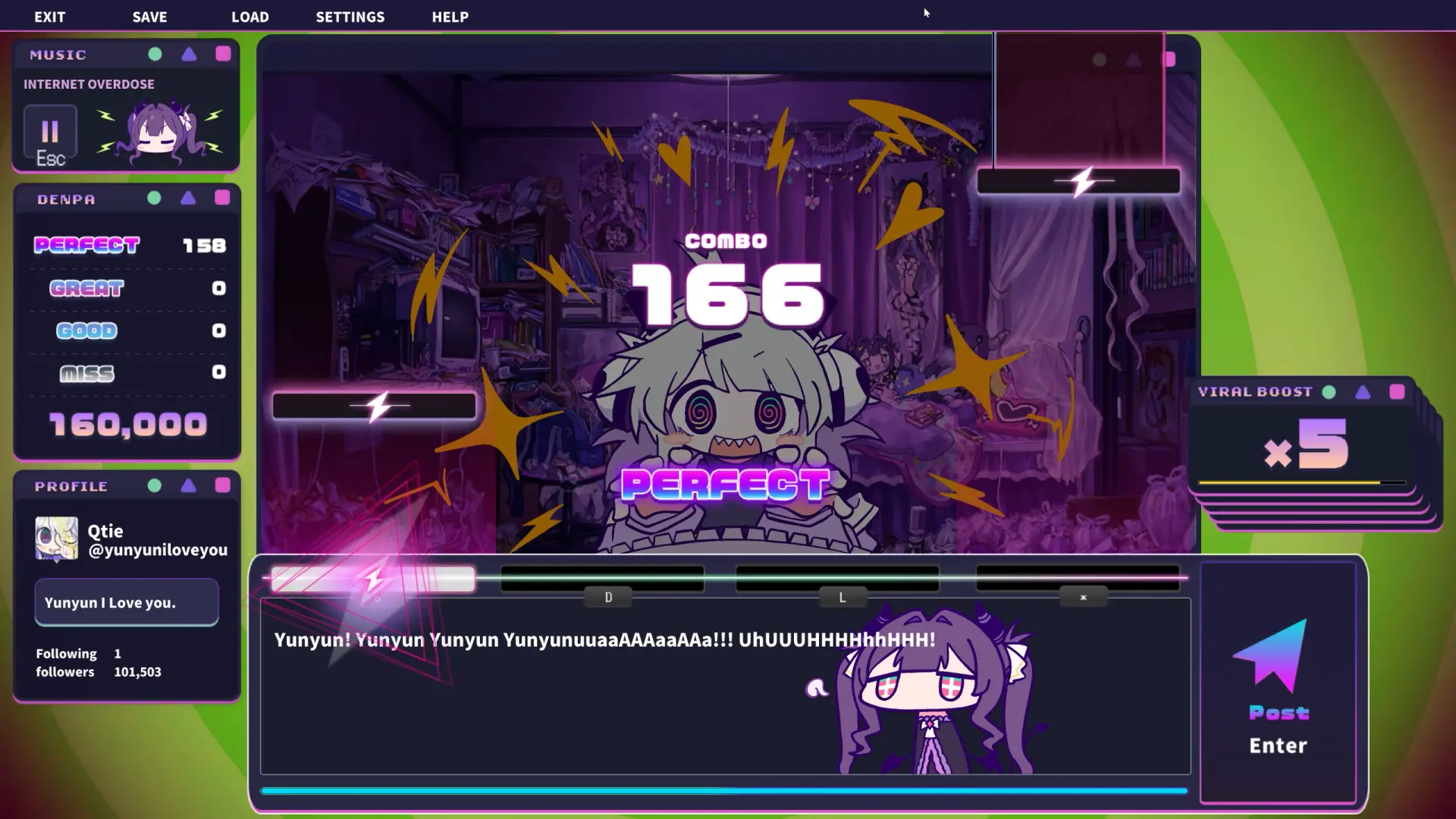
The sheer chaotic nature and tempo of these songs means that higher difficulties are a beast to overcome, placing its hardest songs in time with the top difficulties of arcade rhythm titles like maimai and beatmania IIDX. That being said, you can also get by with far simpler difficulties that will still pose a challenge for those unfamiliar with the genre, but won’t feel as imposing as these non-stop monolith charts designed for only the most dedicated players.
Qtie is playing these songs to share her love for Yunyun with the world in an almost-possessed state, so it’s befitting that each performed note corresponds with a new section of a long copypasta the character can be seen frantically typing alongside the game as you play. In intense sections, this can feel like scrolling through a forum in the older days of the internet with the speed and ferocity of how she types. It’s a fun concept that really makes you feel like you’re not just playing these songs out of obligation, but that you’re the one writing out these unhinged messages with every note you play.
It’s a great way to make you feel like you’re in Qtie’s shoes, and even by the end of my brief demo with the game I couldn’t help but feel like I’d fallen into a similar parasocial spiral for the adorable Yunyun as a result of my fervent music playing-slash-typing frenzy.
It helps that the presentation for the game is second-to-none, aided by fluid animations and fully-voiced conversations between Qtie and Yunyun that can feel deranged in the best way possible. The English translation, not available during my TGS demo but available in a limited-time demo, is also of incredibly-high quality, replacing the 2ch-esque highly-online Japanese slang into similarly-coded, somewhat-pathetic English. I feel my kokoro go doki-doki as I get ready to skibidi denpa in this bihhh.
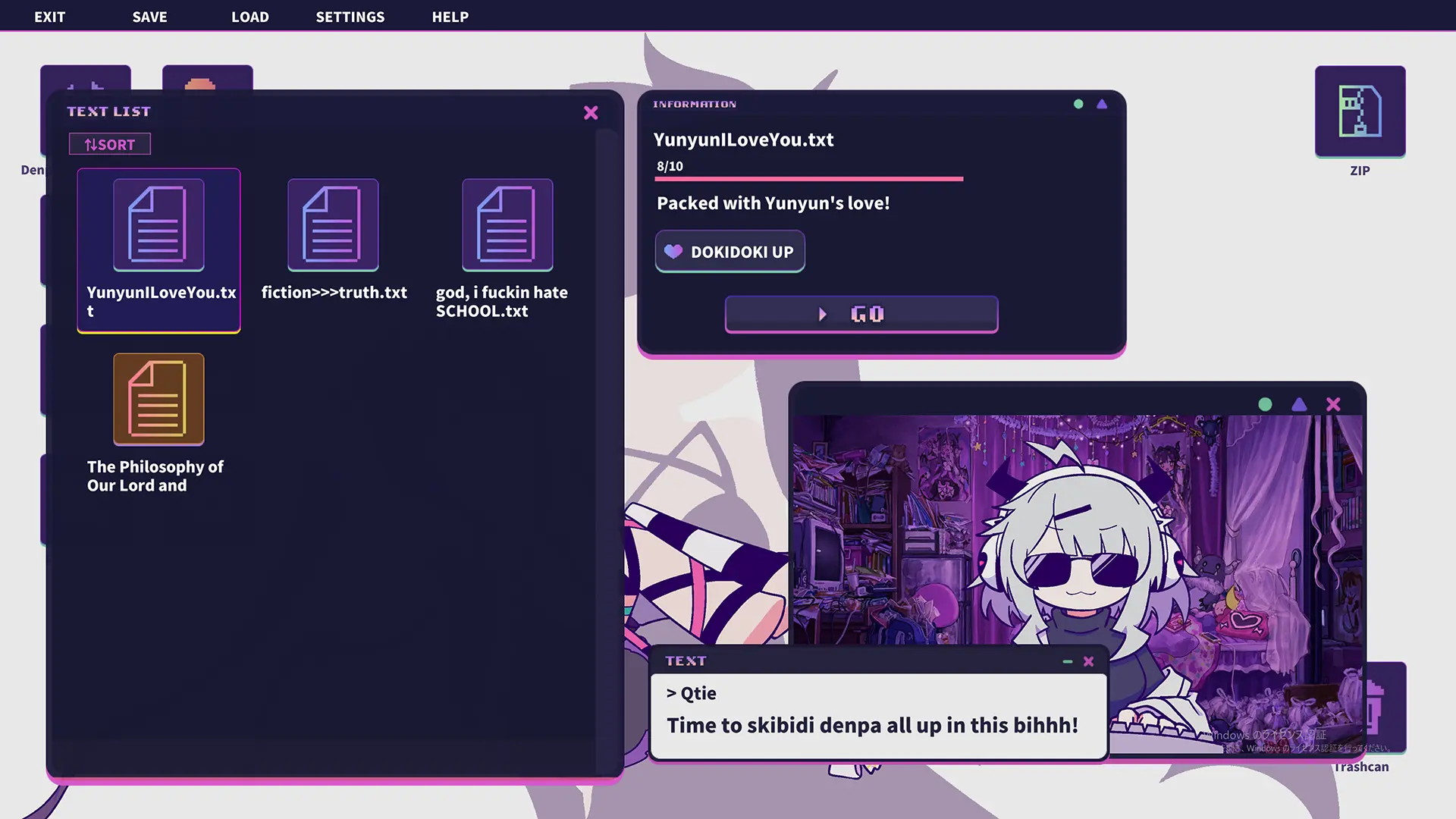
There’s a promise of a story hidden underneath the surface, but how far that goes and if it will have anything more to say but justify the game’s direction remains to be seen. The potential that enabling Yunyun’s online domination could destroy the world and the truth behind Qtie’s traumas that caused her to become a hikikkomori in a pile of her own rubbish is teased and was discussed with me by the developer as we briefly spoke on the show floor, but this was being kept firmly under wraps for the final release.
It’s hard not to fall in love with what’s here, especially if you have any appreciation for Japanese denpa and club music and the hardcore music scene in the country. It’s a love letter to it, channeled through the otaku culture it was raised in and created by developers with just as much love for the genre as the musicians they’re elevating to the forefront of this new title. In an event where there felt like there was all-too-little to discover, Yunyun Syndrome!? Rhythm Psychosis felt like a breath of cybersonic fresh air.


